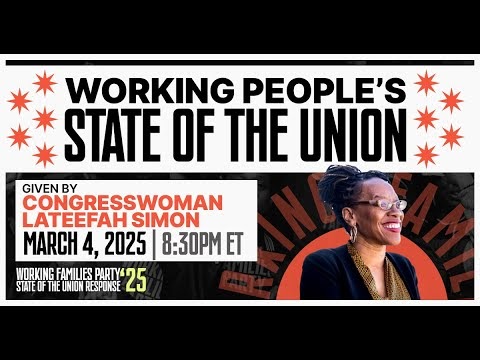Personal, social, health and economic (PSHE) education is the school curriculum subject in England dedicated to supporting children’s safety, health, wellbeing and preparation for life and work. When timetabled and taught effectively, it can play a key role in improving young people’s preparedness for life beyond school, including for higher education and the graduate labour market. For instance, PSHE education can provide a safe and dedicated space for young people to learn about sex and relationships, budgeting and time management, among other things that most students will need to navigate more independently – and sometimes for the first time – during higher education.
As the official subject association for PSHE education, and a charity and membership body supporting over 50,000 teachers and schools nationally with resources, training and guidance, the PSHE Association was especially interested in the Higher Education Policy Institute’s (HEPI) recent report, One Step Beyond, which investigated how well the curriculum as a whole prepares young people for life beyond school.
The report, which is based on an analysis of data from a survey of 1,105 undergraduates in England, found that over half of participants wanted to have received more education on personal finances and budgeting (59%) and to have had more opportunities to learn ‘life skills’ (51%) prior to entering higher education. A large minority also wanted to have received more careers education (44%), a topic that PSHE education covers and which, when delivered well, can make a positive difference to young people’s confidence, sense of direction and career trajectories.
Importantly, the report also found that over half (58%) of participants wanted PSHE education to be compulsory until 18. At present, while relationships, sex and health education (RSHE) is compulsory for 16- to 18-year-olds in schools with sixth forms – and our own PSHE education planning guidance runs up to post-16 / key stage 5 – this requirement is not applicable to other settings, including sixth form and further education colleges. Furthermore, existing PSHE education content on economic wellbeing, personal financial education and careers education is optional in all but independent schools. As there is evidence to suggest that these are topics that young people from more affluent backgrounds are more likely to be taught about and discuss with their parents, all of PSHE education, including economic wellbeing, personal finance and careers education, has the potential to contribute towards narrowing social inequalities. And this is what we argue strongly for in our response to the Curriculum and Assessment Review, alongside strengthening the expectation that all young people should benefit from PSHE education up to the age of 18.
The good news is that since statutory RSHE requirements were introduced in 2020, these appear to have made a positive impact. And the findings from the One Step Beyond report support this idea, with half of the participants reporting feeling well prepared for sex and relationships in higher education in 2024 (47%) – almost double the percentage that reported feeling this way three years earlier (27%).
Another aspect of life which PSHE education can help young people to navigate during school, college and higher education is mental health. The One Step Beyond report found that most participants believed that their schools or colleges had done a ‘good’ or ‘excellent’ job of preparing them to plan and manage their workloads (61%); take care of their mental health and wellbeing (56%); and use healthy coping strategies (55%). However, a substantial minority of participants did not feel this way, suggesting that there is room to improve the quality of education that students receive on these topics – and PSHE education can play a crucial role in making this happen.
PSHE education provides opportunities for young people to learn about mental health and develop skills that can support them in taking care of it. For example, through PSHE education, young people can be taught about how to prevent and manage stress, which can aggravate or contribute towards the development of mental health difficulties. This is achieved in a variety of ways. For instance, by providing opportunities for young people to be taught about how to problem solve, develop greater emotional awareness, use healthy coping strategies, maintain good sleep routines and recognise when and how to access support for themselves or others.
After leaving school, such teaching could help young people to navigate further and higher education, which both demand greater independence and present unique opportunities and challenges. Illustrating this, when 136 A-level students were asked to describe their experience of sixth form using three words or phrases, the majority (79%) used at least one term to describe it as challenging and almost half (43%) described it as intense, stressful or overwhelming. Furthermore, across several interview studies, students have consistently described studying A-levels as a ‘massive step up’, a ‘jump’ and ‘a completely different ballgame’, which demands far more self-directed learning and can be an emotionally turbulent experience. It has also been found that experiencing education-related problems is among the main reasons why 16- to 18-year-olds contact Childline. So, PSHE education during school and post-16 education has the potential to support young people and contribute to improving higher education students’ mental health by equipping them with knowledge, understanding and skills that can help them to navigate this stage of education prior to entering it.
To conclude, high-quality PSHE education has the potential to improve young people’s preparedness for many aspects of higher education – social, academic and economic – as well as for life beyond its walls. And it is for this reason that the PSHE Association has argued in response to the Curriculum Review and Assessment Group consultation that personal finance education and careers education should be placed on the same statutory footing as RSHE and for PSHE education, comprising all these elements, to be scheduled as a school curriculum subject in all schools, with at least one timetabled lesson per week.
Findings from the One Step Beyond report indicate that PSHE education has had a positive impact on preparing young people for life beyond school, but that there is significant potential and need to build on improvements since elements of RSHE became statutory. This includes more emphasis on economic wellbeing, careers and mental health, as well as a guarantee that young people in all post-16 education settings can benefit from PSHE education until the age of 18 – not just those in specific settings.



